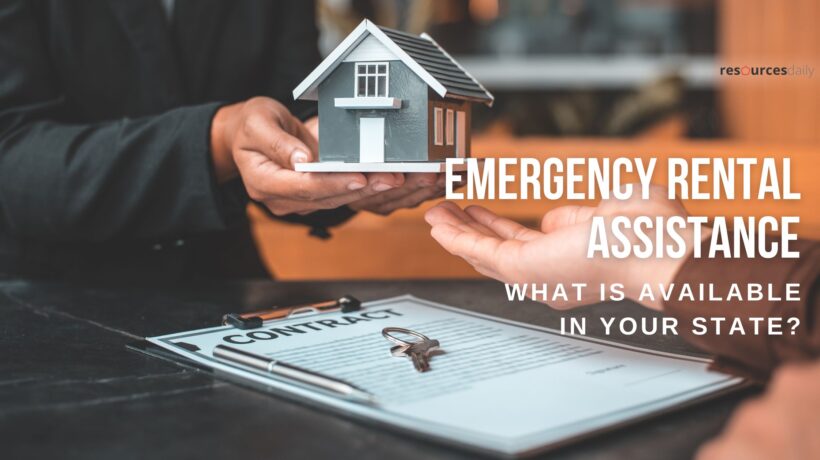When rent becomes unmanageable due to job loss, medical emergencies, or economic disruptions, Emergency Rental Assistance (ERA) programs offer a critical safety net. These federally funded initiatives help tenants avoid eviction, catch up on overdue rent, and stabilize their housing situation. But availability, eligibility, and application processes vary by state. Knowing what’s accessible in your area is the first step toward recovery.
This guide breaks down what ERA programs offer, how to qualify, and where to apply.
What Emergency Rental Assistance Covers
Most ERA programs offer more than just rent relief. Eligible households may receive support for:
- Past-due rent payments, often covering up to 12 to 18 months
- Future rent, typically approved in three-month increments
- Utility and home energy bills, including electricity, gas, and water
- Relocation costs such as security deposits and moving expenses
- Legal aid for eviction defense or mediation
Funds are usually paid directly to landlords or utility providers. If a landlord refuses to participate, some programs allow tenants to receive the funds directly.
How the Program Is Structured
The Emergency Rental Assistance Program was created under two major federal laws: the Consolidated Appropriations Act of 2021 and the American Rescue Plan Act. These laws allocated billions of dollars to help households impacted by COVID-19 and related economic hardship.
The U.S. Treasury distributes these funds to states, counties, cities, and tribal governments. Local agencies then administer the programs under various names—such as “Rent Help,” “Housing Stability Program,” or “COVID Rent Relief.” Each jurisdiction sets its own rules, priorities, and application process.
How to Find Your State’s Program
To locate your state’s ERA program, start with the National Low Income Housing Coalition’s rental assistance directory at nlihc.org/rental-assistance. . From there, you can select your state and view active programs, eligibility criteria, and application portals.
In some states, multiple programs exist at the city or county level. For example, California runs “Housing Is Key,” while Los Angeles County has its own separate initiative. Texas offers “Texas Rent Relief,” but some cities like Houston operate additional programs. Always check both state and local options to maximize your chances.
Who Qualifies for Assistance
Eligibility requirements vary, but most programs follow a similar framework. To qualify, applicants typically must:
- Have a household income below 80% of the Area Median Income (AMI)
- Demonstrate financial hardship due to COVID-19 or other emergencies
- Show risk of housing instability or eviction
- Provide a valid lease or rental agreement
Documentation is key. Applicants must submit government-issued ID, proof of income (such as pay stubs or tax returns), rental agreements, past-due bills, and—if applicable—eviction notices. Some programs prioritize applicants based on income level, eviction risk, or household composition, such as seniors, disabled individuals, or families with children.
How to Apply Effectively
Emergency rental assistance is time-sensitive and often limited. To improve your chances:
- Submit a complete application with all required documents
- Respond promptly to follow-up requests from the agency
- Track your application status through the program’s portal
Incomplete or inaccurate applications are the most common reason for delays or denials. Double-check every field and attachment before submitting. If you’re unsure about a requirement, contact the program’s support line or visit a local housing agency for guidance.
What to Expect After Applying
Once submitted, your application may go through several stages: initial review, verification, approval, and disbursement. Some programs also require an interview or additional documentation. If approved, funds are typically sent directly to your landlord or utility provider.
During this process, tenants retain certain rights. In many jurisdictions, landlords cannot evict tenants solely for applying for assistance. Some areas still maintain temporary eviction moratoriums or offer legal protections for renters in crisis. If you’re facing eviction, seek legal aid immediately—many ERA programs partner with nonprofit legal services to offer free representation.
What to Do If Your State’s Program Is Closed
If your state’s ERA program has closed or exhausted its funds, don’t give up. Other resources may be available:
- Local nonprofits often offer emergency housing grants or mediation services
- Community action agencies may provide utility and housing aid
- Faith-based organizations sometimes offer short-term rental support
- State housing finance agencies may run alternative programs for low-income renters
HUD’s resource locator at hud.gov can help you identify nearby assistance providers. You can also contact 211 or your local United Way for referrals.





